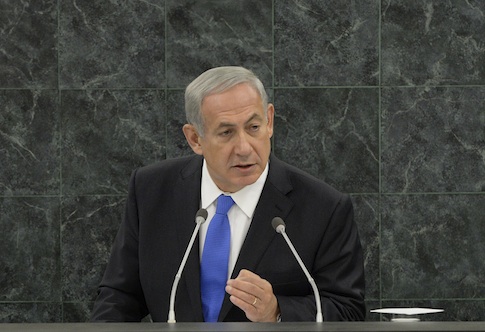JERUSALEM—Israeli Prime Minister Benjamin Netanyahu yesterday termed the West’s interim agreement with Iran as "more political theater than substance" and warned that the sanctions that brought Iran to the negotiating table were already showing signs of crumbling.
"There appears to be general relaxation of sanctions and a rush to accommodate Iran … as if Iran has changed anything of its actual policies," he said at a press conference, according to the Times of Israel.
Foreign business conglomerates have been reported to be jockeying for position to exploit the potentially lucrative Iranian market when sanctions ease. Iranian Oil Minister Bijan Namdar Zanganeh said this week that he was conducting talks with major oil companies in Italy and Norway and that Iran will invite American companies to invest as well. German companies such as Siemens are among those seeking to tap into the Iranian market.
Although Netanyahu has been urged by political opponents and even some allies at home to tone down his public criticism of Washington for having pushed through the interim agreement, the Israeli leader continued to make his displeasure known as he wrapped up a two-day official visit to Rome and the Vatican on Monday.
Iran has not changed its policies, he said, "except to smile, to speak English on occasion, and to make PowerPoint presentations. What a revolution."
Netanyahu and President Barack Obama have had two telephone conversations on the Iranian situation in the past two weeks. The second came 12 hours after the agreement was signed when Obama called Netanyahu in an attempt to assure him that Washington remained determined to prevent Iran from producing a nuclear weapon.
Ha’aretz reported Tuesday that senior American officials have been telling their Israeli counterparts that the Obama administration is not seeking to avoid a confrontation with Iran at any price as critics contend. A military option, they said, remains on the table.
"There is a window where sanctions, new leadership in Iran and international unity give us a chance to solve this thing diplomatically more than any time before," said one American official. "We got our leverage and want to use it."
An Israeli delegation headed by National Security Adviser Yossi Cohen is due to arrive in Washington in a few days to discuss the upcoming negotiations with Tehran for a comprehensive agreement on its nuclear program.
"It’s important to us to get the Israeli perspective early on in order to feed their concerns into our calculations," said the American official.
